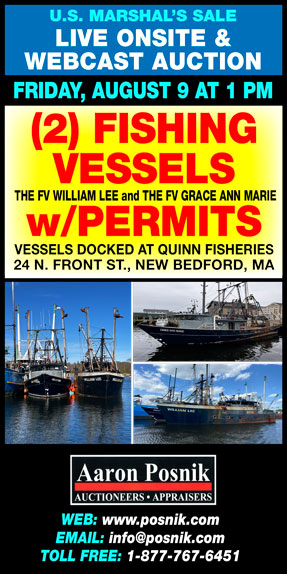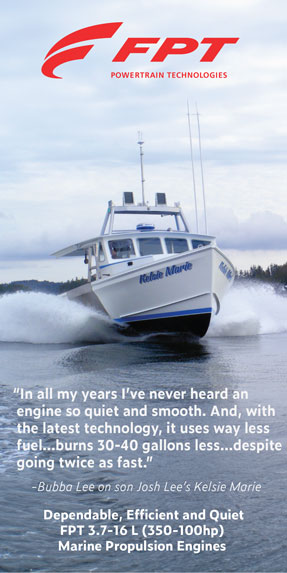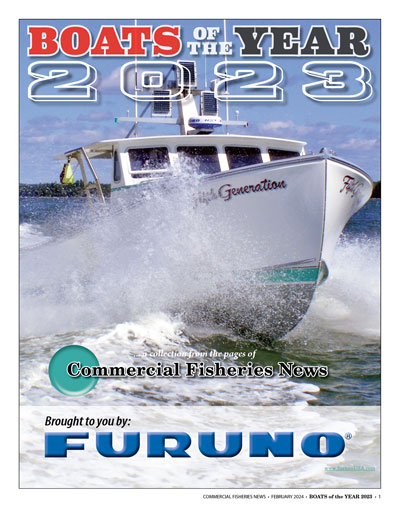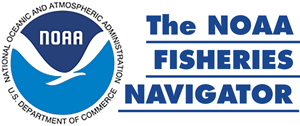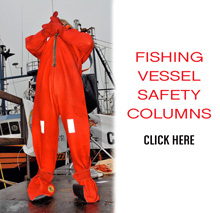Get boat, gear, and house in order
Spending less time on the water now that the sun goes down early?
If you don’t follow the lobsters out to their offshore hideouts in the winter months, or get ready to head south for warmer weather, you probably have developed a number of tasks that you like to do in the November/December period.
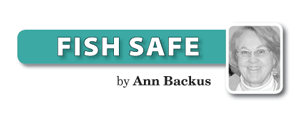
Boat and gear prep
There are the boat-related tasks that are obviously easier to accomplish when the boat is hauled out.
These include checking for corrosion, inspecting the steering gear, checking the packing gland and bearings, inspecting the zincs and through-hull fittings, and inspecting the hull for damage or cracks. (See the maintenance checklist prepared by Fred Mattera in SAFE BOAT-SMART BOAT, CFN, Feb. 2015.)
In terms of lobster gear, one important task would be to rinse the trap rope in hot water or hot water to which you have added bleach to get rid of the algae and bacteria that live on them.
Getting rid of living and dead bacteria is important – because when the gram-negative bacteria die, they leave behind cell walls which contain endotoxin. The endotoxin dust is released when one handles the lines, and breathing it in can result in respiratory symptoms such as cough and chest tightness.
In addition, a 2015 study at the Harvard Chan School of Public Health showed that in healthy adults blood pressure increased with a short-term exposure to endotoxin. (1)
Some fishermen have told me they immerse their trap rope in on-deck hot tanks on board as they haul them in at the end of the season.
This is a great solution to the problem, but not a procedure everyone wants to do or can do on the boat.
In any case, after handling lines, wash hands and clothes to avoid tracking this rope dust into the house.
Inside the house or shop
Beyond the boat and gear tasks, there are some important indoor tasks to consider.
In the recently completed handbook RESCUES, that is the result of interviews with fishermen, their family members and others in Gloucester and New Bedford (2), we list some home/family organizational efforts that families and heads-of-households should undertake in order to maintain a well-ordered household and be prepared should a calamity strike.
To prepare for this job,instead of heading to your favorite marine supply store, head to your local office supply store.
Pick up some file folders and labelling items. Then organize your household documents into categories and collect the documents (or copies of them) which would be crucial for your family to be able to access if something were to happen to you or a family member.
If you keep some of your documents in a lock box at home or a safe deposit box at the bank, slip a piece of paper into the file that gives the location of these documents, and then somewhere in this collection of documents provide the combination to the lock box and/or key and location of the bank safe deposit box.
Here is a list of categories and documents:
• Legal documents: birth certificates, marriage license, passports, power of attorney if applicable, healthcare proxy if applicable, will, house ownership/mortgage, car/boat ownership, discharged loans, etc.
• Bank documents: list of banks and bank accounts with number and name on the account, certificates of deposit, list of fixed deposits (such as Social Security payments made directly to the bank, salaries paid directly), list of fixed withdrawals (loans, charitable gifts), safe deposit box number and bank, and some indication as to where the key is kept, if not in that file.
• Credit cards: somewhere, perhaps in your lock box, you should have a list of credit cards, with number and name, expiration date, three-digit security number, and address of the issuing bank.
• Insurance documents: policy numbers and beneficiaries, pension information if appropriate, retirement accounts, Social Security information, and health insurance or Medicare/Medicaid information.
• Investment documents: list of stocks and bonds held, dividends, retirement accounts, etc.
• Household expenditures: receipts/warranties for major household equipment, utility bills, and loan payment information.
• Fishing expenditures: receipts/warranties for major fishing equipment, maintenance expenses; other items related to tax deductions for your business.
• Usernames, passwords and PINs: you need to figure out what the safest procedure is for you for this one. I have a three-page list, but I struggle with how to keep it safe and accessible at the same time. Include bank ATM PINs, and usernames and passwords for bank accounts, credit cards if you access your accounts online, cell phones, etc. The list is endless. Be sure to let a responsible person know how to access this list in an emergency.
This document organizing task might also offer a good opportunity for any pre-teens or teens in your household to learn about banking, legal documents, or household management.
Pick a portion of the task you feel comfortable sharing with them and ask them to help. They can, for example, use the computer to make lists, visit the bank safe deposit box with you, open their own savings account and learn that they, too, have a social security number that needs to be protected.
Good luck with it all.
I’m going to update my own files and lists right now.
References:
Zhong J1, Urch B2, Speck M2, Coull BA2, Koutrakis P2, Thorne PS2, Scott J2, Liu L2, Brook RD2, Behbod B2, Gibson H2, Silverman F2, Mittleman MA2, Baccarelli AA2, Gold DR2. 2015. Endotoxin and β-1,3-d-Glucan in Concentrated Ambient Particles Induce Rapid Increase in Blood Pressure in Controlled Human Exposures. Hypertension. Sep;66(3):509-16.
Hall-Arber, M, Pinto, K, Backus, A. 2016. RESCUES: Responding to Emergencies at Sea and to Communities Under Extreme Stress. MIT Sea Grant Program Publication Number 16-01. Available at <http://fishingpartnership.org/services/rescuemanual/>.
Ann Backus, MS, is the director of outreach for the Harvard School of Public Health’s Department of Environmental Health in Boston, MA. She may be reached by phone at (617) 432-3327 or by e-mail at <abackus@hsph.harvard.edu>.
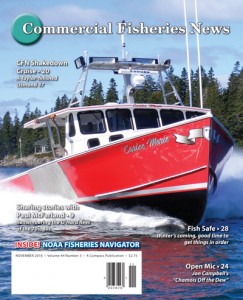
To get more great content and much more you’ll need the November 2016 issue of Commercial Fisheries News – please choose from the following options:
BUY a Single PRINT edition of CFN that is delivered by MAIL. PRINT EDITION
Quickly enjoy ONLINE access with our Hi-DEF flip-book. PURCHASE ONLINE EDITION
(Read online flip-book immediately with purchased access key and download a copy for yourself to keep. Not sure if it works for you? Try a FREE SAMPLE HERE.)
SAVE BIG when you SUBSCRIBE!


